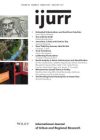The 1990s in Brazil were a time of institutional advances in the areas of housing and urban rights following the signing of the new constitution in 1988 that incorporated the principles of the social function of cities and property, recognition of the right to ownership of informal urban squatters and the direct participation of citizens in urban policy decision processes. These propositions are the pillars of the urban reform agenda which, since the creation of the Ministry of Cities by the Lula government, has come under the federal executive branch. This article evaluates the limitations and opportunities involved in implementing this agenda on the basis of two policies proposed by the ministry — the National Cities Council and the campaign for Participatory Master Plans — focusing the analysis on government organization in the area of urban development in its relationship with the political system and the characteristics of Brazilian democracy.
Details
Written by:
RAQUEL ROLNIK
Digital Object Identifier (DOI)
10.1111/j.1468-2427.2010.01036.x
About DOI
Read full article as PDF
Read full article as HTML
See the references for this article
